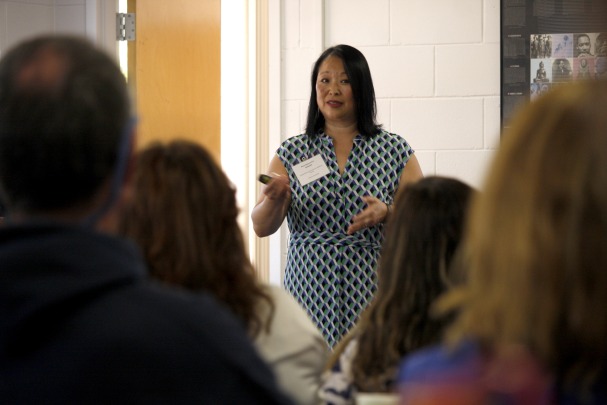| Contact |
Dustin Luca
|
|---|

SALEM, MASS. – Salem State University hosted on Monday its first-ever First-Generation Success Symposium, bringing together faculty and staff from across campus to collaborate on ways to better serve the university’s first-generation students—a population that makes up 60% of the university’s student body.
Organized by the First-Generation Student Success Center, the symposium was designed to deepen faculty and staff understanding of first-generation student experiences, foster collaboration across departments, and generate concrete strategies to strengthen student success.
At Salem State, a first-generation student is defined as someone whose parents or guardians have not earned a bachelor’s degree from a U.S. institution. While these students often face unique challenges—balancing work and study, or navigating unfamiliar academic systems—they also bring valuable strengths, including already-established professional experience and resilience.
“The thrust of the event is to collaborate across offices that either serve directly first-generation students —like the First-Gen Student Success Center— or develop resources that may be used to improve our services for first-generation and traditionally underserved students,” said Damien Boutillon, assistant director of the First-Generation Student Success Center. “Every advance that is made in our service for first-generation students contributes to institutional readiness and making higher education more accessible and better for all.”
The event received a keynote address from Maria Dykema Erb, executive director of Boston University’s Newbury Center and a nationally recognized first-generation scholar. In her remarks, Erb explored her experience in the field and shared ideas on serving first-generation students, who she said were “truly pioneers” in their households when it comes to seeking a higher education.
“As more first-generation students are pursuing a college education, it’s the responsibility of our colleges and universities to be ‘student ready’ and not put the burden of navigating an unfamiliar journey squarely on their shoulders,” Erb said. “Our first-gen students tell us that they don’t know what they don’t know, so it’s up to us to adopt policies, teaching practices, and services that will promote their success. This, in turn, contributes to the success of all students at our institutions.”
